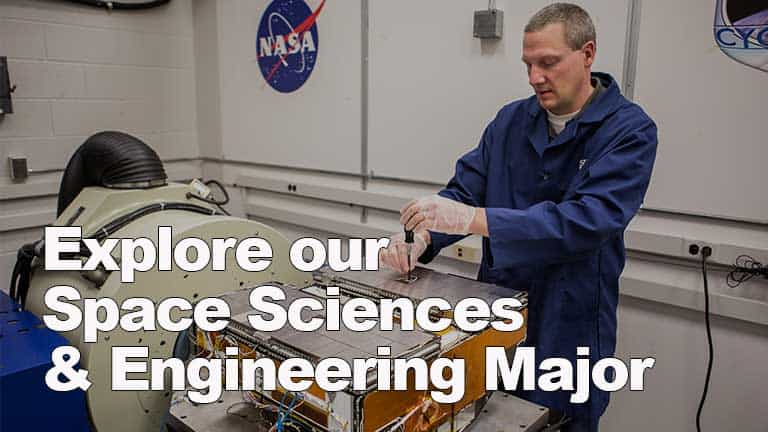BSE Space Science & Engineering

Graduates of the Space Science and Engineering degree program are prepared to pursue graduate degrees in the space sciences or join the space industry, which is facing a severe workforce shortage. They can also join government agencies and federal laboratories that deal with space related disciplines.
Space Science Concentration
The Space Science concentration is for students interested in space physics and allows students to develop their quantitative, theoretical and computational skills necessary to understand the Sun-Earth space system. Requiring depth in fundamental physical understanding enables students to be prepared for research and further graduate training. Learn more.
Space Instrumentation Concentration
This concentration is for students interested in observational solar and space physics and provides a foundation of the Earth and Space Sciences with technical, laboratory and project-based learning experiences within space instrumentation and space systems. Learn more.